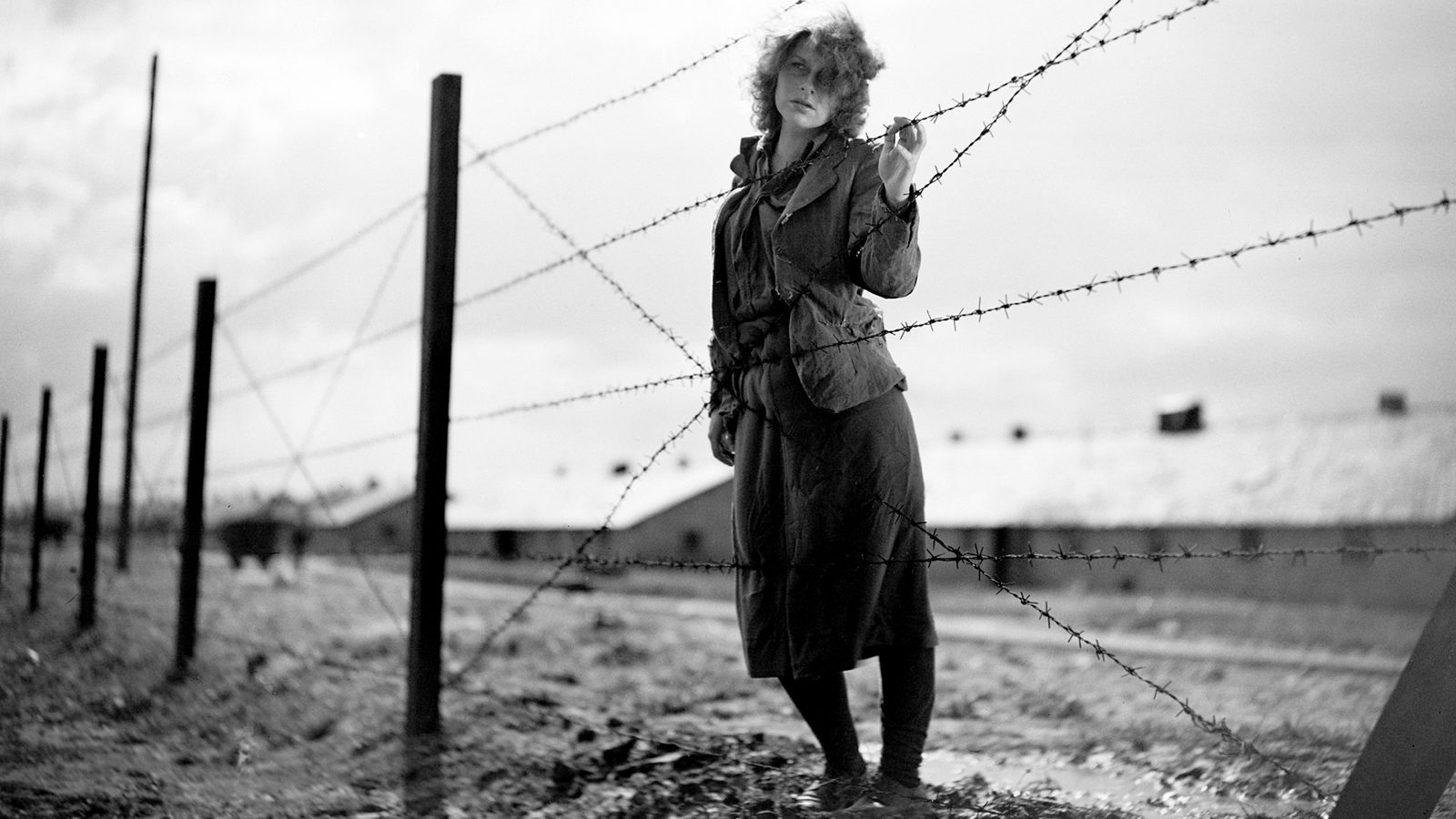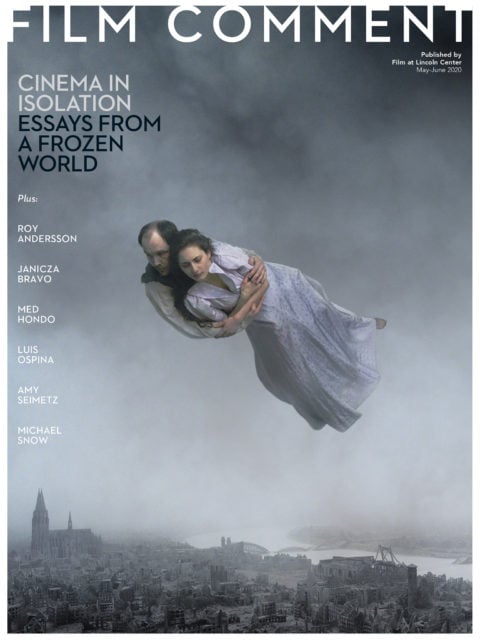By Nicolas Rapold in the May-June 2020 Issue

No Words: Wanda Jakubowska’s The Last Stage
A pioneering Polish filmmaker brought Auschwitz to the screen within years of experiencing the war's horrors

From the May-June 2020 Issue
Also in this issue
The Last Stage
Wanda Jakubowska, 1948
Poland’s National Film Archive – Audiovisual Institute, with Tor Film Production
It remains a shock for most people to discover that a film about the Auschwitz death camp was released in 1948: Wanda Jacubowska’s The Last Stage, along with another major Holocaust work, Alfréd Radok’s Distant Journey, both presented this past winter at the Berlin International Film Festival. Jakubowska’s landmark feature starts on a city street, where a man and a woman are talking, in the kind of throwaway moment that might run under the bustle of the opening titles. Instead, they’re rounded up with others in a Nazi raid that unfolds in the same prolonged shot, as if to underline the lurch from the safety of ordinary life to the unthinkable brutality of the Third Reich. It’s one of many felt details that testify to Jakubowska’s evident urge to preserve the precise awful sensations of fresh horrors; indeed, she had spent time in Auschwitz, and would repeatedly say that embracing the role of a witnessing filmmaker, storing up material, allowed her to endure the experience.
The rest of The Last Stage (also called The Last Stop) takes place almost entirely within the confines of Auschwitz, where it was predominantly shot, loosely based on the story of interpreter Martha Weiss. Scenes unfold that are now familiar from later depictions of the Holocaust: the separation of families upon the arrival of trains at the camp, the piles of suitcases and glasses and shoes, the stacked bunks, the sadism at the hands of guards, the dehumanizing whole of a factory devoted to death. Yet unlike, say, certain scrappier entries in contemporary Italian neorealism, The Last Stage is shot and staged with a level of fairly polished studio craft, and a robust sense of melodrama and heroism that might remind some viewers of Hollywood more than Stalin-era Film Polski. Critical accounts describe the film as a documentary record, which is no doubt true, but its effects are orchestrated, not mere reenactment—whether it’s the terrifying chaotic cruelty of prisoner lineups or the lurid murderous venality of group bosses and officers (all middle-manager mediocrity and pettiness). “Complain and you’ll go out the chimney!” goes one threat (per subtitles).
It’s evident that Jakubowska—who was nominated for an Academy Award in 1933 before her Gestapo arrest and imprisonment, and went on to a long career in the Polish film industry—has been shortchanged by history, perhaps because The Last Stage is openly sentimental about communism and Polish solidarity. But there’s an undeniable boldness here in depicting scenes such as a Potemkin village visit by an international observer, interrupted by a resistant doctor who speaks out (“It’s all lies!”), only to pay by being tortured to death; or the positively Kosinskian flourish of a prisoner band ordered to play on and on, the soundtrack to a danse macabre, as smoke curls in long shots. Coursing throughout the film is the fear that the world would not find out what had happened, from the prisoners desperately scanning smuggled newspapers for mention of their plight to the Grand Guignol public-execution ending and call to action. Now, more people will know about Jakubowska and The Last Stage, which sought to share its story of horrors with the world, immediately and indelibly.
New and forthcoming restorations:
- Seven videos by Anna Bella Geiger, 1974-1981, Electronic Arts Intermix in collaboration with the Ostrovsky Family Fund
- In the Mood for Love, Wong Kar Wai, 2000, Criterion and L’Immagine Ritrovata
- King Vidor x 2: The Sky Pilot (1921) and Hallelujah (1929), Library of Congress in collaboration with Film Foundation
- Waxworks, Paul Leni, 1924, Deutsche Kinemathek and Cineteca di Bologna
- Weegee x 2: Cocktail Party (1950) and The Idiot Box (1967), Anthology Film Archives
Nicolas Rapold is the editor-in-chief of Film Comment and hosts The Film Comment Podcast.







